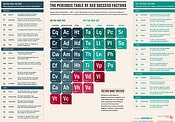E-A-T- stands for expertise, authoritativeness, and trustworthiness.
E-A-T origin can be traced to Google’s Search Quality Rater Guidelines, a document referenced by human quality raters engaged by Google to assess the quality of search results.
In simplest terms, E-A-T mainly focuses on the content creator (integrity, reliability, experience) and the usefulness of the content. Expertise and integrity give birth to authority and trust.
How is Rate Expertise, Authoritativeness and Trustworthiness Rated?
Lets try to understand how Google is able to evaluate content in websites for these three attributes;
Expertise
 The English dictionary defines expertise as elite, peak, or exceptionally high levels of performance on a particular task or within a given domain. When it comes to measuring expertise, Google is concerned more with the content creator to ascertain that he/she is an expert in the field. The focus then is on the content as opposed to the website where its published.
The English dictionary defines expertise as elite, peak, or exceptionally high levels of performance on a particular task or within a given domain. When it comes to measuring expertise, Google is concerned more with the content creator to ascertain that he/she is an expert in the field. The focus then is on the content as opposed to the website where its published.
This bring us to YMYL topics.
The Google’s Search Quality Rater Guidelines (section 2.3) has this to say about the topics;
Pages on the World Wide Web are about a vast variety of topics. Some topics have a high risk of harm because content about these topics could significantly impact the health, financial stability, or safety of people, or the welfare or well-being of society. We call these topics Your Money or Your Life (YMYL).
An example of YMYL topics is legal advisory. Wrong advice can land you in jail. You must therefore engage a qualified legal practitioner for such task. Google on its part take into account educational qualifications of the content creator to rate the content.
However not all YMYL topics may require formal expertise. Take a case of a website sharing experiences of recovering alcoholics. While the topic is YMYL, the personal experience is expertise enough
Authoritativeness
Authority is more about commanding trust and respect among experts in your field as a result of being reliable and truthful. In rating this concept affects both the content creator and the website/website owners.
Of key focus when rating authoritativeness is what others are saying about your content. Your reputation is of paramount importance here. Reviews, recommendations, peers from independent and reputable sources plays a central role.
Trustworthiness
 Trust is about the reliability, truthful, honesty, transparency and legitimacy of both the content and the website.
Trust is about the reliability, truthful, honesty, transparency and legitimacy of both the content and the website.
Customers will buy or endorse you if they trust you. One way you can enhance your trustworthiness is by listing the credentials of your content creators and the website. You can highlight their testimonials, endorsements, awards and other trust factors.
Accuracy is also another key focus by raters of trustworthiness. Citing trustworthy sources can also promote this concept. This concept applies to YMYL queries for the obvious reasons but non-YMYL queries as well.
Is E-A-T a Google ranking factor?
The actual ranking factors employed by Google is one of their top business secrets which we can only speculate. More so, E-A-T is not one of Google’s measurable metrics like pagespeed. Therefore, E-A-T is not a direct Google ranking factor. However, there are insights that Google uses E-A-T to arrive to other measurable metrics which are ranking factors.
In the search quality rater guidelines, Google place expertise, authoritativeness, and trustworthiness of the individual content creator, the content itself, and the website holding the content. An article done by an accountant on a financial topic is more valuable to Google’s perspective than one created by an amateur. This explains the reason why you should always provide your personal qualifications at the end of every article you author.
Google’s Search Quality Rater Guidelines (section 5.1) has highlighted the following attributes of high-quality content – original, in-depth, accurate, unique, professional, clear, skilled content creators.
Is E-A-T important to SEO
The Internet is awash with vast sea of information of all types. Anyone can upload content to a website regardless of their knowledge on the subject. A content creator who has never been to law school for example, can start a legal advisory website. The onus then is on the search engines to devise mechanisms of sieving through this massive content for quality, accuracy and relevance.
The most critical goal of Google is to provide their searchers with relevant and accurate information. That’s the reason they have invested heavily on ranking algorithm and assessing quality of search results. E-A-T therefore is one tool that Google employs to achieve this.
Bear in mind that Google has a heavy obligation to their customers to give them accurate information as many rely on such information to make important decisions. This place E-A-T at the center of rating the quality of any online content.
 SEO efforts places quality content as one of the most important attributes to enhance ranking. Besides ranking, quality content provides an avenue for you to engage, educate and become an authority in your niche,
SEO efforts places quality content as one of the most important attributes to enhance ranking. Besides ranking, quality content provides an avenue for you to engage, educate and become an authority in your niche,
In fact content (quality content) is one of the topmost component of the SEO Periodic Table. Whether its On-page SEO or off-page SEO strategies, EAT should alwys be your no. 1 companion.
7 Ways to Build and Improve E-A-T
We have seen the significance of EAT to SEO efforts. EAT does not have a score per se but there are actions you can take on your content to make it more appealing to Google and by extension to your target audience. Bear in mind that the type of content you create (YMYL or otherwise) will be subjected to different evaluation by Google.
1. Build links to your website – The foundation of effective SEO efforts is backlinks from relevant, high-authority domains. They demonstrate authority and trust for your content
2. Keep your content current – ensure your content is updated, reviewed regularly to make it accurate, trustworthy and professional. This will prevent it from becoming outdated or obsolete unless its information that never changes. This is more relevant for YMYL such as medical field due to discoveries and developments.
3. Perform content audit – This may seem the same as keeping the content current but is much more. It may require you to optimize for SEO, delete, combine pages or update.
4. Search for reviews – Reviews is one way to promote your Google EAT. Whenever you receive reviews (positive or negative) ensure to respond to them as a sign of trustworthiness. The Google quality raters use reviews from reputable sources to evaluate to trust and authority.
5. Hire experts – Google lay special focus on expert content. You can improve your site’s EAT by engaging experienced experts with verifiable testimonials. This is crucial for YMYL topics or any other topic where you don’t have knowledge in. Remember to fire expertise that has proven record in your niche.
6. Blow your own trumpet – One of the methods Google will employ to know if you have expertise in what you are writing is the qualifications and achievements you have provided. Let the Google know about your prowess in the field. This should include your academic qualifications, certifications, awards, books authored etc.
7. Show contact details – Providing addresses, phone numbers, email addresses is a sign that you can be trusted and that your business is legitimate.
Jeff
Safari Affiliate
